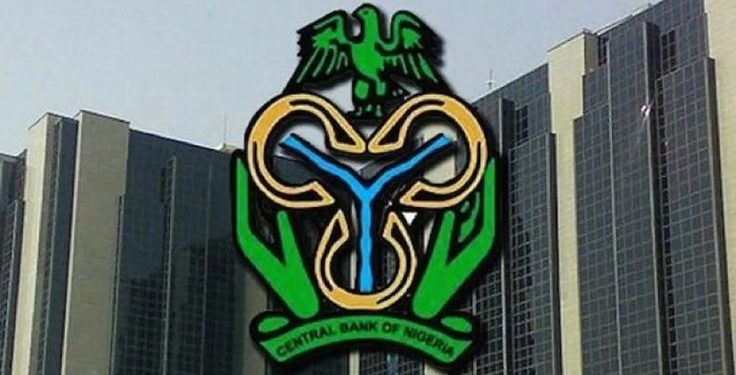The Central Bank of Nigeria (CBN) has tightened its oversight on commercial banks operating under forbearance, setting strict deadlines for compliance and imposing temporary restrictions that could reshape investor sentiment and the banks’ capital strategy for years to come. This sweeping policy has drawn particular focus to Zenith Bank, Access Holdings, and Fidelity Bank three of Nigeria’s top-tier financial institutions whose loan exposures have placed them squarely in the crosshairs of CBN scrutiny.
Understanding the CBN Forbearance Directive
Forbearance, in banking regulation, refers to the temporary easing of regulatory requirements for banks often allowing them to restructure loans, delay recognizing losses, or exceed credit limits to avoid immediate stress. In Nigeria, this has been a critical instrument for managing banking sector risks, especially during periods of economic volatility, high inflation, and currency devaluation.
However, in June 2024, the CBN issued a directive mandating all banks under regulatory forbearance to immediately cease:
- Dividend payments to shareholders,
- Payment of executive bonuses, and
- Undertaking new foreign investments.
This decision is aimed at strengthening the resilience of the financial sector and ensuring that Nigerian banks are adequately capitalized and compliant with existing prudential limits, especially the Single Obligor Limit (SOL), which restricts banks from lending excessive amounts to a single customer or group.
Banks Under Pressure: Zenith, Access, and Fidelity Respond
Among the banks affected, Zenith Bank, Access Holdings, and Fidelity Bank are leading the charge in addressing their regulatory breaches. Collectively, these banks are working feverishly to meet the CBN’s conditions by the stipulated compliance date of June 30, 2025 a deadline with profound implications for their operations, earnings, and shareholder value.
Zenith Bank Plc
Zenith Bank, Nigeria’s largest lender by asset size, reportedly has the highest forbearance exposure, with about 23% of its gross loan book equivalent to $1.6 billion falling under this category. A significant portion of this exposure stems from its lending to a single large obligor, thereby breaching the SOL.
In response, the bank has pledged to exit all regulatory forbearance arrangements by June 30, 2025. It has also already raised in excess of ₦500 billion to meet the recapitalisation requirement set by the CBN for banks with international authorization. This move not only signals Zenith’s financial strength but also its commitment to restoring investor confidence and resuming normal dividend payments by 2025.
Access Holdings (Access Bank)
Access Holdings has a relatively modest forbearance exposure of approximately 4% of its loan book ($304 million). Nonetheless, the bank has moved proactively, assuring stakeholders that it has already complied with SOL requirements and plans to fully exit the remaining forbearance agreements by June 30, 2025.
The bank’s management has emphasized that its capital buffers are robust, and it remains in strong financial health. Like Zenith, Access has also met the ₦500 billion recapitalisation benchmark, positioning itself favorably ahead of the 2026 deadline for recapitalisation across Nigeria’s banking sector.
Fidelity Bank
Fidelity Bank, though a mid-tier lender, has a noteworthy forbearance exposure of around 10% of its total loan book, amounting to roughly $296 million. Its regulatory challenges span both SOL violations (involving two major obligors) and other restructured credit facilities for at least four additional customers.
To address this, Fidelity has undertaken aggressive capital-raising efforts, including a ₦273 billion rights issue and a planned ₦200 billion private placement. These moves are expected to help the bank reach the required ₦500 billion minimum capital threshold, comply with the CBN’s directive, and exit forbearance by the first half of 2025. Management has expressed confidence that once these steps are completed, Fidelity will resume dividend payments and continue its expansion.
Capital Adequacy and Market Reactions
The broader implication of the CBN’s directive is deeply tied to the ongoing recapitalisation exercise, which mandates that:
- Banks with international licenses must maintain a minimum capital base of ₦500 billion,
- Banks with national licenses must raise ₦200 billion, and
- Regional banks must raise ₦50 billion by 2026.
Both Zenith and Access have already achieved their targets, but Fidelity, UBA, and FCMB still lag behind. The pressure to meet these thresholds has resulted in a flurry of capital market activity, with banks issuing bonds, rights offers, and exploring mergers and acquisitions.
However, this regulatory intervention has not been without cost. On the Nigerian Exchange (NGX), the announcement of the dividend freeze triggered a significant drop in banking stocks, with market capitalisation plummeting by as much as ₦183 billion in a single week. This sell-off reflects heightened investor concerns about earnings prospects and liquidity risks in the short term.
Accounting Profit vs. Real Liquidity
A critical part of the CBN’s concern lies in the discrepancy between reported profits and actual cash flow. For example:
- Access Bank reported ₦3.5 trillion in interest income but collected only ₦1.9 trillion.
- Zenith Bank earned ₦2.7 trillion but received about ₦1.5 trillion in cash.
This wide gap suggests that while banks appear profitable on paper, many are relying heavily on accounting practices that do not reflect true liquidity positions a red flag for financial regulators trying to protect depositors and ensure sector stability.
Conclusion: A Sector in Transition
The CBN’s regulatory forbearance clampdown is a watershed moment for Nigerian banking. While the move is seen as tough, it is strategically aimed at fortifying the financial system, safeguarding depositors, and ensuring that banks operate within safe, transparent, and accountable frameworks.
Zenith, Access, and Fidelity are responding positively, with varying degrees of urgency and success. Their ability to meet the June 30 deadline could significantly affect their market perception, capital access, and shareholder trust.






















































